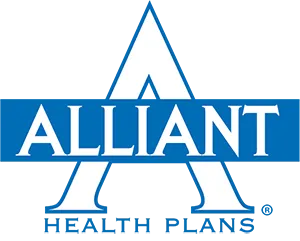Narcissistic Personality Disorder Treatment Center in Rome, GA
Narcissistic Personality Disorder Treatment Center in Rome, GA

Rome, Georgia, offers help for people with narcissistic personality disorder. Therapists in Rome can provide counseling and treatment for this condition. These mental health experts understand the complex issues that come with narcissism.
Getting treatment at Fairland Recovery Center’s narcissistic personality disorder treatment center in Rome, GA, is led by therapists and clinicians who understand the complexities of the disorder.
Getting expert behavioral health care can improve relationships and daily life. The right therapist can teach new ways of thinking and behaving. We may use different methods to help patients learn empathy and manage their emotions better.
Fairland Recovery Center has a team of experts who work together. We also offer more intense programs for those who need extra support for their well-being.
Understanding Narcissistic Personality Disorder
Narcissistic Personality Disorder (NPD) is a complex mental health condition. It affects how people view themselves and interact with others. NPD can cause significant problems in personal and professional relationships.
Characteristics of Narcissistic Personality Disorder
People with NPD often show a pattern of grandiosity and a need for admiration. They may:
- Have an inflated sense of self-importance
- Expect constant praise and admiration
- Exaggerate their achievements and talents
- Believe they are superior to others
- Take advantage of others to get what they want
NPD sufferers typically lack empathy. They struggle to recognize or identify with others’ feelings and needs. This can lead to difficulties in forming genuine connections.
Diagnosing Narcissistic Personality Disorder
Mental health professionals use the DSM-5 (Diagnostic and Statistical Manual of Mental Disorders) to diagnose NPD.
The process involves:
- A thorough clinical interview
- Observation of behavior and interpersonal interactions
- Assessment of symptoms and their impact on daily life
NPD symptoms must be persistent and present in various contexts. They should cause significant distress or impairment in social, occupational, or other important areas of functioning.
Prevalence and Impact on Relationships
NPD affects about 1-2% of the general population. It is more common in males, with studies showing it’s 50% to 75% more prevalent in men than women.
In relationships, people with NPD often:
- Struggle with intimacy and emotional connection
- Have difficulty accepting criticism or feedback
- Display controlling or manipulative behaviors
- Lack of empathy for their partner’s feelings
These traits can lead to strained or unstable relationships. Partners may feel undervalued, criticized, or emotionally neglected. Recognizing these patterns is crucial for those affected by NPD, whether directly or indirectly.
Our Programs
At Fairland Recovery Center, we offer several options to help treat men and women suffering from NPD. Our goal is to provide the most effective services to our clients, working with them to develop a program that meets their needs.
We offer several different sober living options, which allow our clients to live on the property while receiving treatment. Sometimes, living in a secure, safe environment away from any triggers is the best option.
Our main programs include:
- Partial Hospitalization Program (PHP): This program requires clients to participate in treatment for several hours, five to seven days a week. Clients tend to participate in individual, group, and holistic services.
- Intensive Outpatient Program (IOP): IOP is a more flexible option for clients who work or care for their families and cannot commit all their time to treatment. In this program, clients only receive treatment 3-5 days a week for a few hours, depending on their needs.
- Outpatient Program: Though we do not recommend general outpatient for first-time clients, outpatient is excellent as a step-down option for men and women who have already been through a higher level of treatment.
Therapeutic Approaches to NPD
Treatment for Narcissistic Personality Disorder involves several effective therapeutic methods. Each approach targets different aspects of NPD to help patients develop healthier thought patterns and behaviors.
- Psychodynamic Therapy focuses on uncovering unconscious motivations behind narcissistic behaviors. Therapists help patients explore their past experiences and relationships. Psychotherapy aims to increase self-awareness and emotional understanding. Patients learn to recognize how their narcissistic traits affect others.
- Cognitive-Behavioral Therapy is a structured approach that addresses unhealthy thought patterns and behaviors. It helps patients recognize and change narcissistic thinking. CBT teaches coping skills and strategies to manage NPD symptoms. Patients learn to challenge their distorted self-perceptions and unrealistic expectations.
- Dialectical Behavior Therapy (DBT) combines elements of CBT with mindfulness techniques. It helps patients regulate emotions and improve interpersonal relationships by teaching mindfulness, distress tolerance, emotion regulation, and interpersonal effectiveness.
- Group therapy offers unique benefits for NPD treatment. It allows patients to interact with others and receive feedback in a controlled setting. In group sessions, narcissists can practice empathy and active listening and learn from others’ experiences. They also receive honest feedback about their behavior, which helps develop healthier social skills.
Dual Diagnosis Treatments
Dual-diagnosis treatments tackle NPD alongside other mental health conditions. Common co-occurring disorders include:
- Depression
- Anxiety disorders
- Bipolar disorder
- Borderline Personality Disorder
- Eating disorders
The program uses an integrated approach. Patients receive:
- Medication management for both conditions
- Customized therapy plans addressing all symptoms
- Skills training to manage multiple disorders
- Nutritional counseling and lifestyle adjustments
Treating both NPD and other mental health disorders together leads to better overall outcomes.
Addiction and Substance Abuse Programs
Many individuals with NPD struggle with addiction. The center’s substance abuse program addresses both NPD and addiction simultaneously.
Treatment components include:
- Medically supervised detox
- Individual and group therapy
- 12-step program integration
- Relapse prevention strategies
- Aftercare planning
Therapists help patients understand how NPD traits contribute to addictive behaviors. They teach coping skills to manage NPD symptoms without substances.
Our program also addresses underlying trauma or emotional issues fueling both NPD and addiction. This comprehensive approach promotes lasting recovery.
Mindfulness and Personal Growth
Mindfulness and personal growth are key components in treating narcissistic personality disorder. These practices help individuals develop self-awareness, build self-esteem, and learn healthy boundaries.
Developing Self-Awareness
Self-awareness is crucial for those with narcissistic personality disorder. Therapy sessions often focus on helping patients recognize their thoughts and behaviors.
Mindfulness exercises can be very effective. These may include:
- Daily meditation
- Journaling
- Body scan techniques
These practices help individuals tune into their emotions and reactions. Over time, this increased awareness can lead to better self-regulation and interpersonal skills.
Therapists may also use role-playing exercises. These allow patients to see how their actions affect others. This can be a powerful tool for building empathy and understanding.
Building Self-Esteem
Low self-esteem often underlies narcissistic behaviors. Fairland Recovery Center focuses on helping patients develop a healthier self-image.
This process involves:
- Identifying negative self-talk
- Challenging unrealistic expectations
- Celebrating small accomplishments
Patients learn to value themselves based on internal qualities rather than external validation. This shift can reduce the need for constant admiration and praise.
Group therapy can be beneficial. It provides a safe space for individuals to practice new social skills and receive peer feedback.
Learning Healthy Boundaries
Setting and respecting boundaries are essential for recovery. Patients learn to recognize their own needs and limits and those of others.
Therapists may use:
- Assertiveness training
- Communication exercises
- Conflict resolution techniques
These skills help patients navigate relationships more effectively. They learn to express their needs without dominating or manipulating others. Support groups can provide additional practice in maintaining boundaries. Members can share experiences and strategies for dealing with challenging situations.
As patients progress, their relationships become more balanced and fulfilling, reinforcing the benefits of their personal growth journey.
Support Systems and Recovery
Getting help from others and taking care of yourself are key parts of healing from narcissistic abuse. A strong support network and ongoing self-care can make a big difference in recovery.
Family and Friends as Support
Trusted family and friends can play a vital role in recovery from narcissistic abuse. They can offer emotional support, a listening ear, and help with daily tasks. Having people to talk to who believe and validate your experiences is crucial.
It’s essential to set clear boundaries with supporters. Let them know what kind of help you need. This might include going with you to therapy sessions or just spending time together.
Not all family and friends will understand narcissistic abuse. Some may even side with the abuser. It’s okay to limit contact with unsupportive people during recovery.
Survivors of Narcissistic Abuse
Support groups for survivors of narcissistic abuse can be beneficial. These groups let you connect with others who have been through similar experiences. Sharing your story and hearing others can reduce feelings of isolation.
Online forums and chat groups are also good options. They let you get support from home at any time. Many survivors find it easier to open up online at first.
Therapy groups led by mental health pros can teach coping skills. They offer a safe space to work through trauma with expert guidance.
Ongoing Recovery and Wellness
Recovery is an ongoing process that takes time and effort. It’s important to be patient with yourself and celebrate small wins during and after your treatment program.
Self-care is crucial for long-term wellness. This includes:
- Regular exercise
- Healthy eating
- Getting enough sleep
- Stress-relief activities like meditation or yoga
Continuing therapy can help you work through lingering issues. Many survivors benefit from ongoing counseling even after initial treatment.
Building new, healthy relationships is part of recovery. This might mean making new friends or dating again. Take things slow and trust your instincts.
Setting and maintaining firm boundaries is key to preventing future abuse. Learn to say no and prioritize your needs.
Your Path to Healing Begins at Fairland Recovery Center
Take the first step towards healing and recovery today. At Fairland Recovery Center in Rome, GA, we offer specialized treatment for Narcissistic Personality Disorder in a compassionate, supportive environment.
Our expert team uses evidence-based therapies and personalized treatment plans to help you or your loved one overcome the challenges of NPD.Don’t let NPD control your life any longer. Contact Fairland Recovery Center now to schedule a confidential consultation. Your journey to a healthier, more fulfilling life starts here.
Find Help Now
We accept most major insurances











